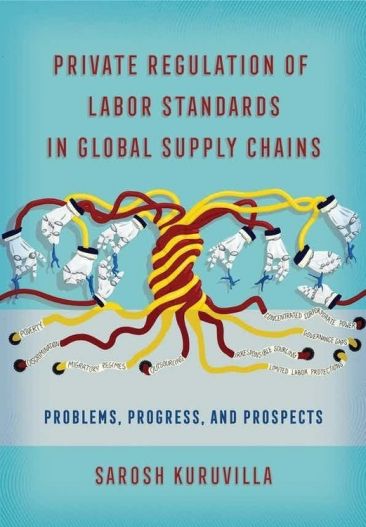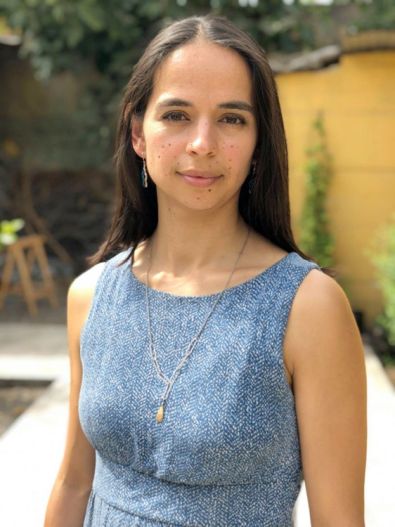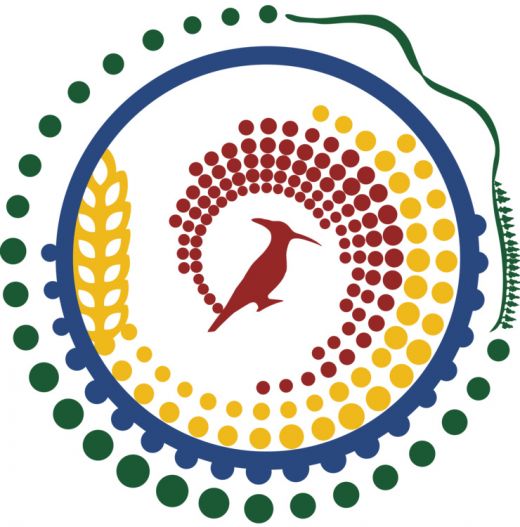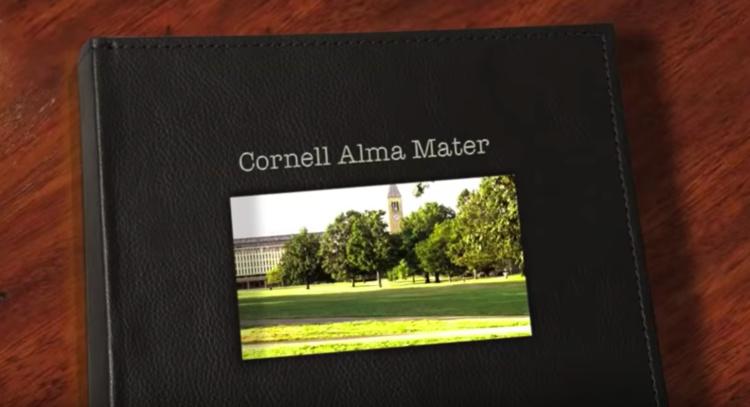South Asia Program
The Future of Money: How the Digital Revolution Is Transforming Currencies and Finance

October 14, 2021
4:00 pm
The concept of money is about to be fundamentally redefined, says Eswar Prasad, the Tolani Senior Professor of Trade Policy at Cornell University.
In a live, virtual Chats in the Stacks book talk on his new book, The Future of Money: How the Digital Revolution Is Transforming Currencies and Finance (Harvard University Press, 2021), Prasad explains how this transformation will impact corporations, banks, states, and individuals. Changes may lead to improvements in efficiency, personalization of services, and market access for the unbanked, but they may also bring instability, lack of accountability, and the erosion of privacy. The Future of Money explains how to maximize the best and prepare against the worst, as businesses, governments, and individuals embrace new financial technologies that have the power to fundamentally change our lives.
Prasad is also a senior fellow at the Brookings Institution and previous chief of the financial studies division in the International Monetary Fund’s research department. A live Q&A will follow the talk. The audience is encouraged to submit their questions in the chat.
Additional Information
Program
South Asia Program
POSTPONED: Private Regulation of Labor Standards in Global Supply Chains

November 9, 2021
4:00 pm
Dr. Kuruvilla's book talk scheduled for November 9 ,2021 is being postponed. It will be re-listed on the events.cornell.edu calendar as soon new date has been confirmed. We apologize for any inconvenience.
In the absence of a global regulatory system for labor standards, many companies have been developing and enforcing their own codes of conduct aimed at preventing “sweatshop” conditions in their supply chains. While these programs may be touted by businesses that develop them, little has been known about their actual effectiveness, says Sarosh Kuruvilla, professor of industrial relations, Asian studies, and public affairs. In a live, virtual Chats in the Stacks book talk on Private Regulation of Labor Standards in Global Supply Chains (Cornell University Press, 2021) Kuruvilla will share findings from his comprehensive investigation into the world of private, voluntary labor-condition regulation. Built upon a deep dive into data from companies, multi-stakeholder institutions, and auditing firms, the book seeks to understand the impact of current labor standards and consider systematic improvements that will positively impact the lives of workers in global supply chains.
A live Q&A will follow the talk. The audience is encouraged to submit their questions in the chat.
Additional Information
Program
Southeast Asia Program
South Asia Program
Musicology Colloquium: Anaar Desai-Stephens, “The Rise of YouTube in India: Infrastructure, Aesthetics, and Corporate Strategy.”

December 2, 2021
4:30 pm
Lincoln Hall, 124
This presentation has been postponed.
Abstract:
In late 2018, the Indian YouTube channel T-Series became the most highly subscribed channel in the world, surpassing Swedish vlogger Pewdie Pie with 63 billion views and 88 million subscribers. In this talk, I investigate the successful expansion of YouTube in India over the past decade by attending to the intertwining of music-media aesthetics and infrastructural shifts.
Focusing on the videos and career of Shraddha Sharma, who became India’s first “YouTube star” in 2011, I highlight an aesthetics of intimacy that marked successful Indian YouTube musical acts between 2011 and 2015. In tandem, the talk outlines the changes in telecommunications and digital infrastructure that have enabled the widespread consumption of streaming media in India. Drawing together anthropological literature on infrastructures and ethnomusicological work on the social nature of aesthetics, I argue that the phenomenal success of YouTube in India over the past decade can best be understood as corporate responsiveness to increasing infrastructural availability through the modality of musical aesthetics.
Bio:
Anaar Desai-Stephens is an Assistant Professor of Ethnomusicology at the Eastman School of Music, University of Rochester. Anaar received her Ph.D. in Ethnomusicology from Cornell University in 2017, where she received the annual Donald J. Grout award for best dissertation in music. Her work has been supported by Cornell University’s Randel Dissertation and Teaching fellowship and the American Musicological Society’s Howard Mayer Brown Fellowship.
Her in-process monograph, Voicing Aspiration: Bollywood Songs and the Dreamwork of Contemporary India, explores the role of popular music as a medium for aspirational self-transformation in neoliberalizing India. She is the co-editor of “Musical Feelings and Affective Politics,” a recently published double issue of the interdisciplinary journal Culture Theory Critique. Trained as a violinist, Anaar is an active performer across a range of genres and currently plays with the Brazilian forró band “Forró estrellas du norte” (North Stars Forró).
Additional Information
Program
South Asia Program
Netflix's 'Bridgerton' Welcomes the Sharma Family in Season 2 Photos

Durba Ghosh, PACS and SAP
Durba Ghosh, professor of history, explains that adding the Sharma family to season two of the Netflix show “Bridgerton” is historically accurate as British officials between 1811 and 1820 involved with the East India Company often raised families with Indian women and sometimes brought their children back to England to be immersed in English culture.
Additional Information
How China Plans to Avert and Evergrande Financial Crisis

Eswar Prasad, SAP
Eswar Prasad, professor of economics and international trade policy, says that an abrupt default on a number of debts by Evergrade “would be a useful catalyst for market discipline, but could also sour both domestic and foreign investor sentiment.”
Additional Information
Sex Differences in the Global Burden of Tuberculosis

Saurabh Mehta in Lancet
Tuberculosis is a major contributor to the global burden of disease, causing more than a million deaths annually. This Lancet article assesses the levels and trends of the global burden of tuberculosis, with an emphasis on investigating differences in sex by HIV status for 204 countries and territories from 1990 to 2019.
Additional Information
Students Promote Climate Resilence
Climate Research to Reduce Global Impacts
Students and recent alumni joined faculty-led research last summer to reduce climate threats in Haiti, East Africa, and Tajikistan.
Additional Information
Rhythms of the Land: Indigenous Knowledge, Science, and Thriving Together in a Changing Climate

October 13, 2021
12:00 am
Brian C. Nevin Welcome Center
A three-day, international conference bringing together communities, scholars and policymakers.
We will present our research findings from Indigenous and rural societies in the Pamir Mountains of Afghanistan, Kyrgyzstan, Tajikistan, as well as the Standing Rock Sioux Nation and Oneida Lake Watershed in the United States of America. These Indigenous and rural communities have contributed least to the anthropogenic climate crisis but are facing its harshest consequences. While these peoples are largely ignored, we are creating an enabling environment for their voices to be heard at our three-day conference. Rhythms of the Land Conference will present findings from the Ecological Calendars for Climate Adaptation Project (ECCAP) undertaken by a team of students and scholars from the USA, Germany, Italy, and China.
Oct. 11
To include presentations of our research findings on building local level anticipatory capacity for climate change through implementable ecological calendars. Our research will also be communicated through works of art presented by prominent Indigenous artists from around the world. The diverse calendars for each community will be presented within an artistic aesthetic. Preview the community reports.
Oct. 12
Will be devoted to policy formulation, communication of climate adaptation strategies, and next steps in applied research.
Oct. 13
Will identify specific initiatives for action. Collective insights from presenters offer a sustainable roadmap for climate change adaptation – and hope - for all, regardless of political ideology.
COVID-19 event public safety requirements:
RSVP for public events required by Oct. 10 (Registration is full)Wear masks at all times during the event.Every participant is expected to be fully vaccinated.
Oct. 11 public programming to include:
Nevin Welcome Center, Cornell Botanic Gardens
9 a.m. - 10 a.m.
Environmental Justice and Indigenous Communities
James Ross, Teetl’it Gwich’in, Past Chief of Fort McPherson and
Negotiator of the Gwich’in Land Claim Agreement
10 a.m - 10:40 a.m.
Methodology of Hope – The Role of Ecological Calendars in Responding to the Challenge of Climate Change
Dr. Karim-Aly Kassam, International Professor of Environmental & Indigenous Studies, Dept. of Natural Resources & the Environment
Herbert F. Johnson Museum of Art
3:15 p.m. - 3:55 p.m.
Measurements meet human observations:integrating distinctive ways of knowing in the Pamir Mountains to assess local climate change
Professor Cyrus Samimi, University of Bayreuth, Germany
4:00 p.m. - 4:50 p.m.
Artists and Communities Panel Conversation: Environmental Justice
Frederick McDonald, Past-Chief Executive Officer Fort McKay First Nation
Natani Notah, Navajo interdisciplinary artist and educator
Tony David, Director, Environmental Division, Saint Regis Mohawk Tribe
Oct. 12 public programming to include:
Nevin Welcome Center, Cornell Botanic Gardens
8:30 a.m. - 9:10 a.m.
What Are the Challenges for Climate Change Adaptation for Indigenous and Rural Communities?
James Ross, Teetl’it Gwich’in, Past Chief of Fort McPherson and Negotiator of the Gwich’in Land Claim Agreement
Schwartz Performing Arts Center
5:55 p.m. - 6:35 p.m.
Where Do We Go from Here? Concrete Outcomes for Climate Adaptations
James Ransom, Past Chief Saint Regis Mohawk Tribe, Past Director, Environment Program, SRMT
6:45 p.m. - 8:00 p.m.
Dance Performance: Blood, Water, Earth
Chancellor Santee Smith
Cornell University is located on the traditional homelands of the Gayogo̱hó꞉nǫ' (the Cayuga Nation). The Gayogo̱hó꞉nǫ' are members of the Haudenosaunee Confederacy, an alliance of six sovereign Nations with a historic and contemporary presence on this land. The Confederacy precedes the establishment of Cornell University, New York state, and the United States of America. We acknowledge the painful history of Gayogo̱hó꞉nǫ' dispossession, and honor the ongoing connection of Gayogo̱hó꞉nǫ' people, past and present, to these lands and waters.
Additional Information
Program
Einaudi Center for International Studies
Reppy Institute for Peace and Conflict Studies
South Asia Program
Lingua Mater Student Competition Deadline

November 8, 2021
5:00 pm
The Lingua Mater competition invites students to translate Cornell's Alma Mater into a different language and submit a video of the performed translation. The inaugural Lingua Mater student competition took place in 2018 as part of Cornell's Global Grand Challenges Symposium. The top three videos received cash prizes.
2021 competition details
Can you translate Cornell’s Alma Mater into your mother tongue (or a language you are learning/have learned at Cornell) and sing it? We invite you to translate “Far Above Cayuga’s Waters” and submit a video of you (and your friends!) performing it somewhere on any of Cornell’s campuses.
Translations do not need to be exact or perfectly in meter but should capture the feel and tune of our university’s Alma Mater. As is customary, include the first verse, refrain, second verse, and refrain in your video submission (for guidance, listen to a performance and read the lyrics).
Video submissions need to be MP4 files at 1920 x 1080 (1080p), in landscape mode with an aspect ratio of 16:9. Please ensure that you have copyright permission for any images/videos you use.
Entries will be reviewed by a panel of judges. Submissions will be judged equally on the translation, the musical quality, and the creativity in visual presentation.
The top three entries will win cash prizes.
Winners will be announced during International Education Week (November 15-19, 2021) and the top three videos will be posted online that week.
Entries may be submitted by any registered Cornell student or group of students.
Submission deadline: Monday, November 8, 2021 at 5 pm ET
SUBMIT YOUR VIDEO AND LYRICS HERE
Please contact Angelika Kraemer, Director of the Language Resource Center, if you have any questions.
The Lingua Mater competition is co-sponsored by the Language Resource Center and the Office of the Vice Provost for International Affairs.
Additional Information
Program
Einaudi Center for International Studies
East Asia Program
Southeast Asia Program
Latin American and Caribbean Studies
South Asia Program
US Foreign Policy Post-Withdrawal from Afghanistan

September 22, 2021
6:00 pm
Myron Taylor Hall, Room 290
A discussion with CATO's Doug Bandow and Prof. Sarah Kreps.
Additional Information
Program
Einaudi Center for International Studies
South Asia Program
